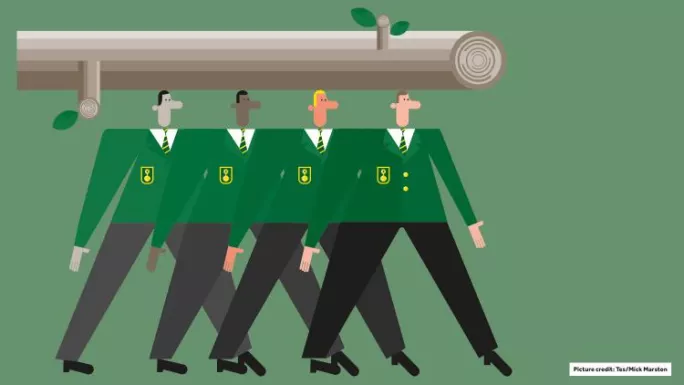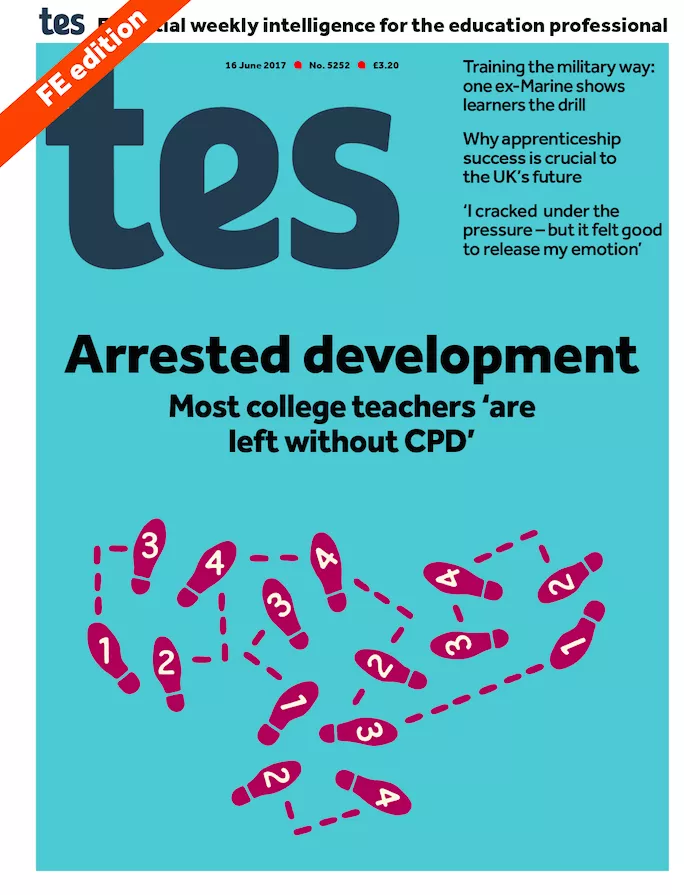Starts v completions
In this week’s Tes Further, Lady Penny Cobham, director general of The 5% Club, writes that, despite the overall acceptance that apprenticeships will become increasingly vital to the UK’s future after Brexit, the distinction between the number of people who start apprenticeships and those who complete them is too often overlooked.
“With government and industry seemingly agreed on the need to deliver apprenticeship opportunities, the focus now needs to be on ensuring young people successfully complete these high-quality courses,” Lady Cobham writes. “Get it wrong and we will be deprived of the skilled workforce needed to deliver a prosperous future for Britain.”
CPDisaster
Almost two-thirds of FE teachers do not spend any time on CPD, a new report by the Eduction and Training Foundation (ETF) has revealed. The report, published exclusively by Tes today, shows that in 2015-16 FE teachers spent an average of 15 hours a year on CPD - but this figure conceals that fact that 60 per cent did not do any professional development at all.
Editorial
Julia Belgutay says that the ETF’s figures make for a worrying read. “For FE to stay on the cutting edge, colleges will need to find a way to make sure their teachers remain the best they can be,” she says. After all, as FE evolves, so too should its teachers.
Rascals to regimentals
This week, Sarah Simons journeys to Tes FE Awards winner Motivational Preparation College for Training. The organisation’s founder, Huw Lewis, is a former Marine, and he tells Simons how MPCT transforms school-leavers into professional soldiers.
MPCT’s success rates are phenomenal: learners from the college have a 90 per cent success rate at military assessment centres, and 94 per cent success at phase 1 British army training. “The speedy transformation of young learners from school-leavers into disciplined future military professionals leaves one question,” Simons writes: how do MPCT do it?
Making a murderer
Simons also ponders if there was ever an opportunity for intervention in the case of Salman Abedi, the terrorist who bombed a pop concert at the Manchester Arena in May, destroying the lives of so many.
“As teachers, we discuss radicalisation as a form of grooming,” Simons writes. “where a vulnerable person is targeted, carefully fractured from those close to them and have their identity slowly eroded to an extent where they are no longer able to think for themselves. She says that as a community we must reflect on what led him to believe it was the right thing to do.
Let it go
Patrice Miller, a specialist English teacher at Ealing, Hammersmith and West London College, writes that teachers’ often impregnable defences can sometimes self-destruct from within. But when it does, it’s important to take some time alone and reflect. Try taking a walk in moments of classroom mania, or make time for life’s guilty pleasures. Releasing emotions is a good opportunity to grow.
FErret
Did you know that the average general FE college has 6,443 students, or that it receives £23,162,282 in funding from the government? Well, FErret didn’t until he read today’s ETF’s Further Education Workforce Data for England report.
Of course, no two colleges are the same - and FErret, for one, is glad this is the case. After all, it is the diversity of the sector that keeps him pacing his nest with excitement on a weekly basis.
All this and much, much more in this week’s Tes Further.
Want to keep up with the latest education news and opinion? Follow TES FE News on Twitter, like us on Facebook and follow us on LinkedIn.












